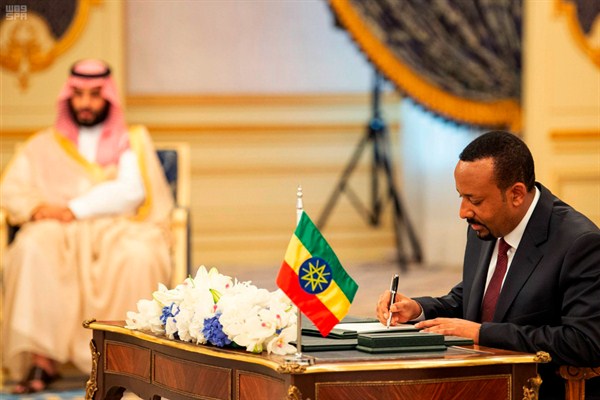ADDIS ABABA, Ethiopia—Since protests swept 42-year-old Abiy Ahmed into power as Ethiopia’s prime minister a year ago, the country has undertaken a dramatic series of changes. Abiy has ended Ethiopia’s two-decade conflict with its neighbor Eritrea, introduced ambitious reforms designed to lessen repression, and vowed to organize Ethiopia’s first free and fair elections. Taken together, these developments from Africa’s youngest head of state amount to an attempted revolution from within Ethiopia’s long-ruling coalition.
As Ethiopia remakes itself at home under Abiy, it is also forging a new set of ties with wealthy Middle Eastern nations across the Red Sea, breaking from a decades-old pattern of keeping them at a distance. Well before Abiy’s rise, an intense wave of Gulf Arab and Turkish outreach had begun stitching the Horn of Africa into the fabric of the greater Middle East, redrawing the geostrategic map in ways both promising and worrisome. To the surprise of many, Ethiopia is now reaching back.
For decades, Ethiopia’s foreign policy sought to guard its independence from outside powers and warned against Arab encirclement or entanglement. Abiy has charted a starkly different course, betting on his ability to effectively partner with and enlist the support of Gulf Arab states and even Egypt, one of Ethiopia’s traditional adversaries. In 2018, Abiy accepted $3 billion in aid and investment from the United Arab Emirates and a year’s worth of oil, with payment deferred, from Saudi Arabia. He made warm early visits to both countries and to Egypt.

